The orchestra that makes its home in the Kennedy Center Concert Hall has only had one American music director in the last two generations. So it’s easy to forget that the 100-strong band is, after all, the National Symphony Orchestra of the United States. Maybe that’s why it has felt so obvious for the NSO to just go ahead and promote the Italian charm and charisma of its new music director, Gianandrea Noseda, who’s now much of the way through his first year at the helm.
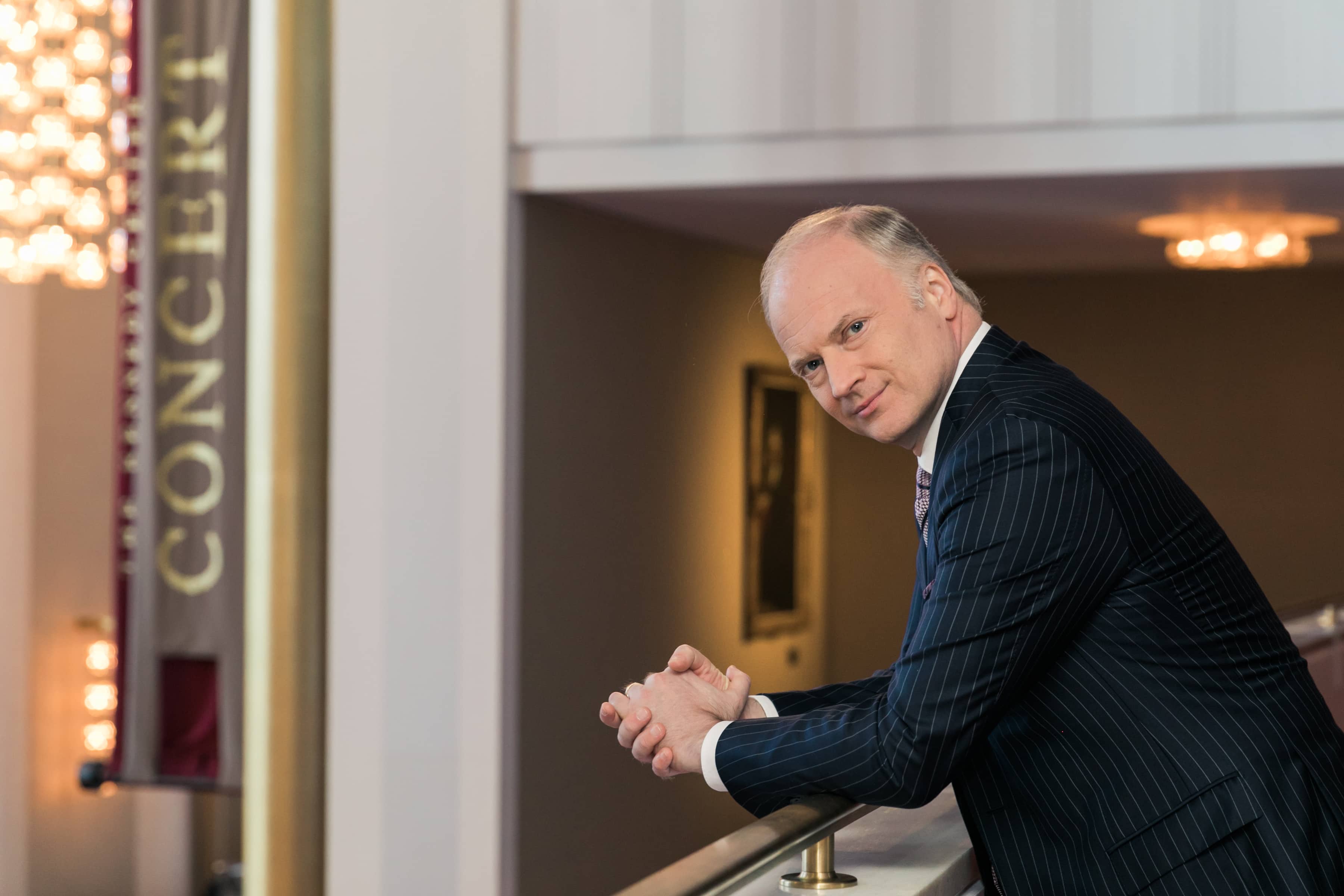
But there are so many other assets that Maestro Noseda brings to Washington in an era when the Kennedy Center is diversifying its programs to touch almost all areas of musical and popular culture. With a huge background in Russian symphonies and operas gained at the Mariinsky Theatre in St. Petersburg, a string of Italian successes at the Metropolitan Opera that morphed into consecutive hits in the Met’s French opera repertoire, and an enormous discography recorded at the BBC’s provincial orchestra in soccer-mad Manchester, England (where he had to balance fan loyalties with his own beloved hometown soccer club, AC Milan), Maestro Noseda loves to mix various cultural influences.
It’s nothing for him to unearth a piece of Russian piano music orchestrated by a recent Italian composer and throw it at the NSO and its audience, often delighting them beyond notorious debates over “new music” or “contemporary classical music.” But there’s one place where the Italian influence shines directly through: Maestro Noseda’s strong preference for adding a vocal element to symphonic performances. Almost any reason he can find to throw several of the world’s leading classical singers – and he seems to know all of them – into an NSO program is good enough. And he does it for a humorously surprising, self-deprecating reason he revealed to me in a conversation in his Kennedy Center office last Friday.
Here are excerpts of my chat with the NSO conductor whose first name, you should know, is pronounced just like “John Andrea” but with the European pronunciation of “an-DRAY-ah” as in Andrea Boccelli. (He won’t ask you to use his last name but for the record, it’s “no-ZAY-da.”) Enjoy – I know I did.
David Rohde: How do you find Washington culturally? Not just the arts, but the restaurants, the people, what’s it like kind of living here?
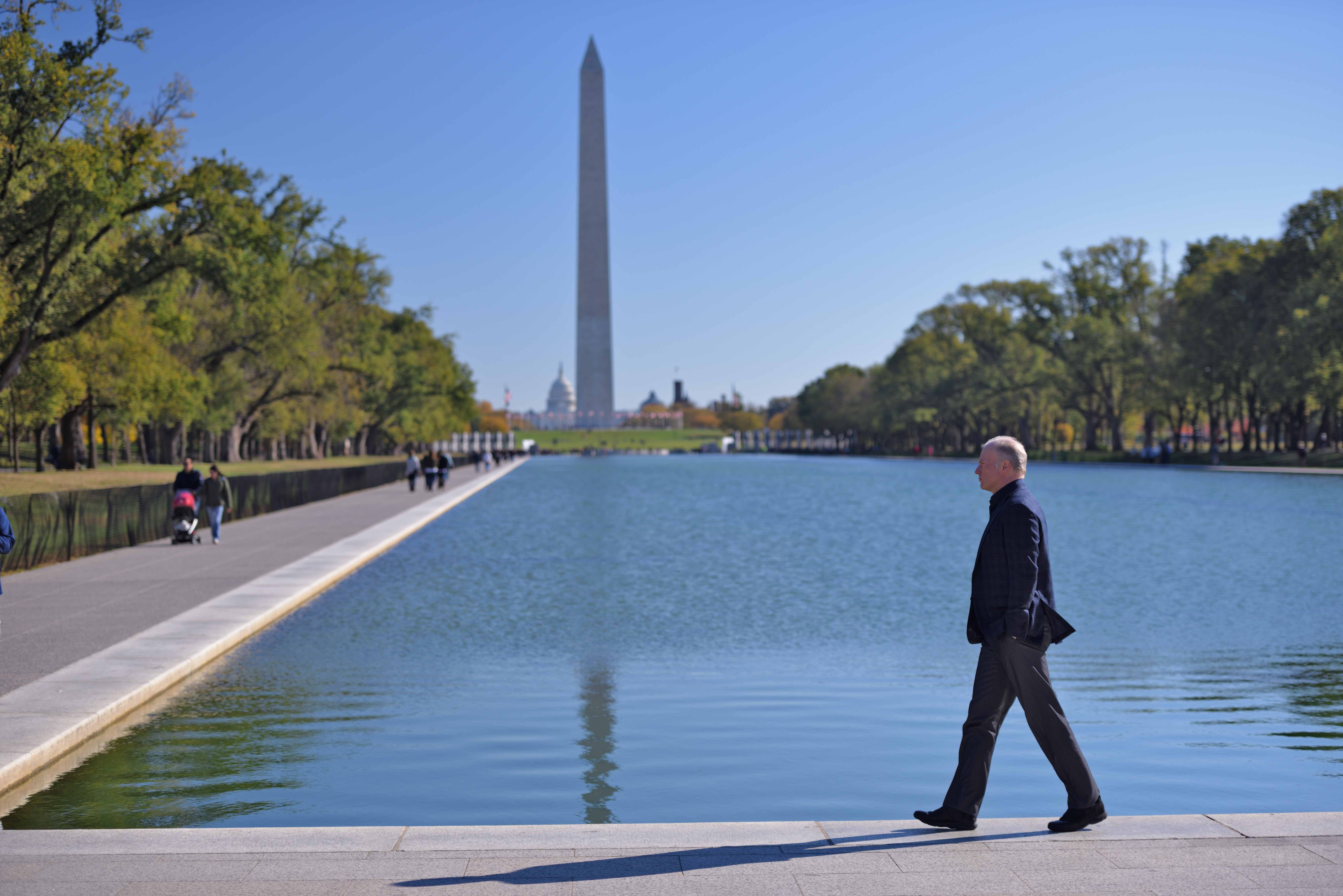
Gianandrea Noseda: I find Washington a very alive city. We just rented, my wife Lucia and I, an apartment in Foggy Bottom, so I’m surrounded by students. Probably I’m the oldest in the building! Well, not the oldest but among the older people there, because every time I walk in the elevator I find, not teenagers, but university students. The life here is very vibrant and the cultural life is very exciting. The Kennedy Center presents a lot of things, not only the Concert Hall and the NSO but the opera, the Millennium Stage, all the activity, the festivals, the modern music, the “Direct Current” [a city-wide festival of contemporary works that includes the NSO]. And you have the Shakespeare Theater, you have huge museums, the Library of Congress, the Smithsonian. Talking about restaurants, you can find all the cuisine – Italian, French, Brazilian, Greek, Thailand, Middle East, Oriental, sushi. What this city has to offer is huge.
You had an immediate rapport with the National Symphony Orchestra when you came in as guest conductor in 2015 and the players were asking management to hire you. Something similar seemed to happen in Manchester a decade earlier. The British press said you came into the BBC Philharmonic [the name of the BBC orchestra that’s based in Manchester] and there was immediate rapport. Is that accurate, and did what happened in Washington repeat the same experience?
Oh, that was very quick in Manchester. After the first rehearsal, I had the general manager coming to my dressing room and inviting me out for lunch, and asking me if I would consider concretely the possibility of becoming the chief conductor there. But I did the same kind of study of both orchestras [before accepting]. Not after the first rehearsal with the NSO but after the second one, I got [Kennedy Center President] Deborah Rutter inviting me out for lunch. So there is a difference here – it took one extra rehearsal!
What is important is if you feel welcome in the orchestra, if you see that your way of making music is very much the same way the orchestra is intending the music. Of course, you bring your own experience to your music-making. But I found a very eager orchestra, both there and here. Both orchestras had great quality and great potential. When I got the invitation from the National Symphony Orchestra, I think I answered in less than one week.
What about when you do a show at the Metropolitan Opera? The orchestra there works with so many conductors. What is it like for them to adjust to you versus anybody else?
You know they are so professional, they have a certain standard of quality in playing – incredible, among the best five or ten orchestras in the world. Especially because they constantly change the repertoire, they change conductors in front of them constantly, and they still keep the quality very high. But if they respect the conductor, they are also the most flexible orchestra ever. They are used to playing with singers – you know, to play with singers requires a lot of flexibility. If they decide to play with you or to play for you, it’s a big joy. If they decide the contrary, it’s very painful [laughs]. But with myself, it has not happened yet!
You’ve done a lot of the big Verdi operas there. But what people may not know is your background with Russian and French operas at the Metropolitan Opera. In fact, your Met debut in 2002 was in a Russian opera, not Italian. How did that happen?
I spent roughly 10 years as the principal guest conductor at the Mariinsky Theatre. [Legendary Russian conductor] Valery Gergiev at first asked me to be responsible for the Italian repertoire there. But being there in St. Petersburg, you cannot avoid conducting another repertoire. And for me, I was very curious to touch, and to conduct with my own hands, Boris Godunov [by Modest Mussorgsky], Eugene Onegin, Queen of Spades [both by Tchaikovsky], and a little bit less-known repertoire like Prokofiev’s Betrothal in a Monastery and War and Peace. So while I was doing Italian opera, I was asked to do Queen of Spades, I was asked to do Boris, and I did it in the right place, where everybody was “breathing the Boris language.” I mean the Mussorgsky language, the Tchaikovsky language.
I’ve always been passionate about Russian literature, so I’ve always been reading Pushkin, Dostoevsky, and Tolstoy. And Chekhov, Bulgakov, and many others. It was sort of my personal love of that culture. And so my debut at the Met was War and Peace by Prokofiev, without rehearsals …
Without rehearsals? But that opera’s so huge.
Yeah but I mean I knew it pretty well because I had conducted it in La Scala, in Covent Garden, but always with the Mariinsky forces from St. Petersburg [meaning the same singers in named roles]. And so just finding in front of me a different orchestra, a different chorus, with the singers I already knew – big singers, Russian singers, it was nice.
But the second offer [at the Met] was La Forza del Destino, so there was my first Verdi opera. [He then names several other Verdi operas, including new Metropolitan Opera productions of La Traviata and Il Trovatore that he premiered at the Met.] Then the French repertoire came quite strangely. I don’t know why they offered me Les Pecheurs des Perles [a landmark new production of The Pearl Fishers at the Met that premiered on New Year’s Eve of 2016], honestly, because I’m not recognized as one of the Bizet or French opera conductors. Well but of course I adore French music, and I’ve conducted a lot of the orchestral music by Ravel, by Debussy, by Satie, by Fauré – there’s not a big orchestral output by Fauré but I’ve conducted it.
It was strange, it was a new production, and it was a cast of friends of mine, including Matthew Polenzani, Diana Damrau, and Mariusz Kwiecien…
I bet that’s part of the reason you got The Pearl Fishers. Those singers probably asked for you.
Well, I embraced the project with all of my enthusiasm. It went well [laughs] so they offered me Roméo et Juliette by Gounod the following season. I think that gives an impression of a conductor with a wide span of repertoire. Because I don’t like to be identified as only a Verdi conductor or an Italian opera conductor – or a Beethoven symphony conductor!
Not everything I do works the way I would I like. Sometimes I feel myself not ready yet to do something, and I’m courageous or stupid enough to do it anyway [laughs]. But then I put it in my pocket, I wait five more years, I go back to the repertoire I don’t think I served properly yet.
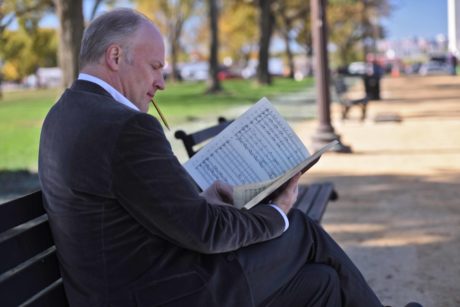
When you were interviewed for the Met’s movie-theater HD presentation of The Pearl Fishers, you said you felt like a “pearl fisher” yourself, going into the score and finding new details.
Yes.
Is that something that happens for you with every opera score, or every symphony score? Because you’re known for details and I want to know how that happens.
Oh, I’m known for details? [laughs]
I’ve read it a number of times. Well, I feel I’ve experienced it a couple of times.
I’m very detailed because I think the beauty is hidden behind the details. It’s one thing to be able to narrate a long-arched story, but you have to be able to do that without losing the details because that gives more spice on the history. So, when I was asked to do Les Pecheurs des Perles I knew the opera a little bit. And I accepted because of the cast, because of the new production. And I saw some pictures of the new production, so I thought, “That is going to be great.”
When I started to learn the score, I’m not saying I hadn’t taken the score seriously, but when you start looking at the score, page after page, you say, “Wow, look at this! Oh! Look at this note! Look at this orchestration! Look at this vocal development of the phrase!” And I felt myself really like diving and finding the pearls. The pearls were there, but they required my attention to get found.
Specifically, if you see something new in, say, a bassoon part that you hadn’t seen before, with limited rehearsal time, are you that granular in rehearsal?
If you see something in the score, you have different ways to communicate that to the orchestra. Sometimes it’s just [a matter of] looking in the eyes of the instrumentalist to encourage him, to give more importance to that element. If you don’t get what you want, you can, with words, just emphasize the notes, say that even if you’re not a soloist that’s a note that should be taken like a solo, you should just shine there. From the psychological perspective of the orchestral player – the artists of the orchestra – to be asked to play certain elements with a lot of care, that spreads within the orchestra. That helps to have a very refined performance.
Is one of your missions in Washington, as it appeared to be in Manchester, to let people know about the symphonic or non-opera composers and arrangers from Italy of the 20th century? You recorded a lot of that music with the BBC Philharmonic.
Yes, and I’ll give you an example. For the “SHIFT Festival” [the NSO’s upcoming concert on April 14], I put Italy and Russia together. So we’re doing the Stravinsky ballet Pulcinella, which is really Stravinsky’s orchestration of Pergolesi’s music coming from Naples. In the second half I’m doing Russian music orchestrated by Italians, so we have Islamey by Balakirev – that’s a piano piece but now orchestrated by Alfredo Casella – and some of the Etudes-Tableux by Sergei Rachmaninoff orchestrated by Ottorino Respighi.
Have you talked to NSO Artistic Advisor Ben Folds about his plans over your four-year contract with the orchestra?
Of course, we’ve been talking a couple of times by telephone. And we have tried to cover a number of different topics.
Many orchestras wrestle with their subscribers over how much “new music” to put in their regular concert series. But usually, this doesn’t include music with a beat or “groove” like Ben Folds’ own piano concerto, which the NSO puts in the “De-Classified” series. If Ben’s piano concerto is good enough to be performed by the National Symphony orchestra, why shouldn’t the regular subscribers hear it as well?
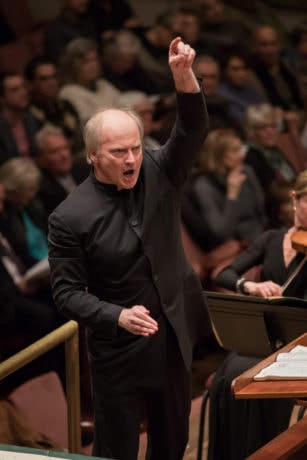
I think sometimes to put something in a box helps it to be more recognized by the audience. It’s not a judgment that “this is good” or “this is bad.” Sometimes, you know, let’s talk about sports. Sports is always very important, but you know, [to say the term] “football” is not enough. Because “football” here in America means something. In Europe it means something different – it’s soccer. So sometimes you have to put it in a box.
But the goal is just to talk about sports! And my dream is in 20 years’ time, 30 years’ time, not having the difference between rock music, classical music, pop music, baroque music, opera music. It’s just music – good or bad. But still, we are dealing with the boxes. We are in a time of transition. It’s not because I think the [Ben Folds] piano concerto is not dignified to be played with the subscriptions. But I think Ben can help to attract certain people to the other [series]. Actually, it’s all music going on on stage. You can like it or dislike it. Sometimes within a concert, I like more of this and I like less of that. But what is the ultimate goal? At a certain point, to provoke the curiosity, to switch on the light.
Naturally with both the NSO’s own heritage and your own in Russian music, next season the NSO is performing symphonies by both Shostakovich and Prokofiev.
And last season when I came here and did the entire Prokofiev ballet score of Romeo and Juliet.
You know who’s a big fan of Shostakovich and Prokofiev – the composer of rock operas for musical theater, Andrew Lloyd Webber.
Of course! I can understand that.
He has a show on Broadway called School of Rock. It’s all adolescents who are in that show. And he visited them from England, and they asked him what kind of music he wanted to present to them, and instead of another piece of popular or Broadway music, he showed them the “Precipitato” from Prokofiev’s seventh …
Seventh sonata! B-flat major! [he starts singing the very percussive theme]
You’ve probably sat through various of your piano soloists doing that as an encore, right?
Oh, I’ve had many pianists do that. Actually, Yuja Wang in one of the NSO concerts last December played it [as an encore]. But of course Prokofiev is a great composer.
I’ll tell you a small story. When I arrived in Russia in 1997, I thought Prokofiev was a genius and Shostakovich was [just] a great composer. As I started to live there, I perceived the opposite – the Russians consider Shostakovich a genius and Prokofiev a great composer. I thought, what’s wrong with me, or with that? But from the Russian perspective, Prokofiev was seen as someone who left Russia and came back. While Shostakovich always lived there, even after living through some tough, tough years. That’s why they probably felt Shostakovich closer to their souls.
For myself, after 10 years of going there regularly, I think both are geniuses!
As opposed to some other American cities, everybody in Washington “knows” the National Symphony Orchestra, simply because you’re on television on Memorial Day and the Fourth of July. Do you think that leads some people to take the orchestra for granted? You know it’s there, it’s kind of like a public utility, but we’re not going to show up for the regular concerts.
We have the same story with television and the national symphony [the RAI National Symphony Orchestra] in Torino [Turin, Italy, where he also runs the opera company]. But that is nothing negative. Then it’s our job to add more information – that we have a subscription season, come and enjoy!
We also want to bring the music outside the walls of the Kennedy Center, and that is also the way to say that the music is for everybody who wants to approach it. We went last week to the Duke Ellington School, we go to Union Station. But it has to be a mutual exchange. In the 21st century, I cannot be sitting here in this chair and waiting for people to come say hello to me. I also have to go to the people and say hi myself.
I’ve already heard a number of people in Washington mentioning that you’ve done that. Speaking of Turin, you’re bringing your own opera company here to Washington next year for a full concert presentation of The Sicilian Vespers [the Verdi opera I vespri siciliani].
Correct, it’s in the spring of 2019.
And you have a tremendous international lineup of singers coming to sing with the National Symphony Orchestra next season in various programs. Is that coincidence or by design?
There are two reasons. One is that because with singers, you have lyrics, you can tell a story more easily than with a purely orchestral work. Second, if you invite soloists, singers, the orchestra immediately sounds differently, in a more flexible way, in a more espressivo way. They try to imitate the vocal lines. I can spend five minutes to ask, I want this phrase this way. You put it to singers, they do it automatically, and that stays for longer than my explanation! So it’s just how to make the orchestra play more espressivo. Invite singers – and then they [the musicians] do it right away! [laughs]
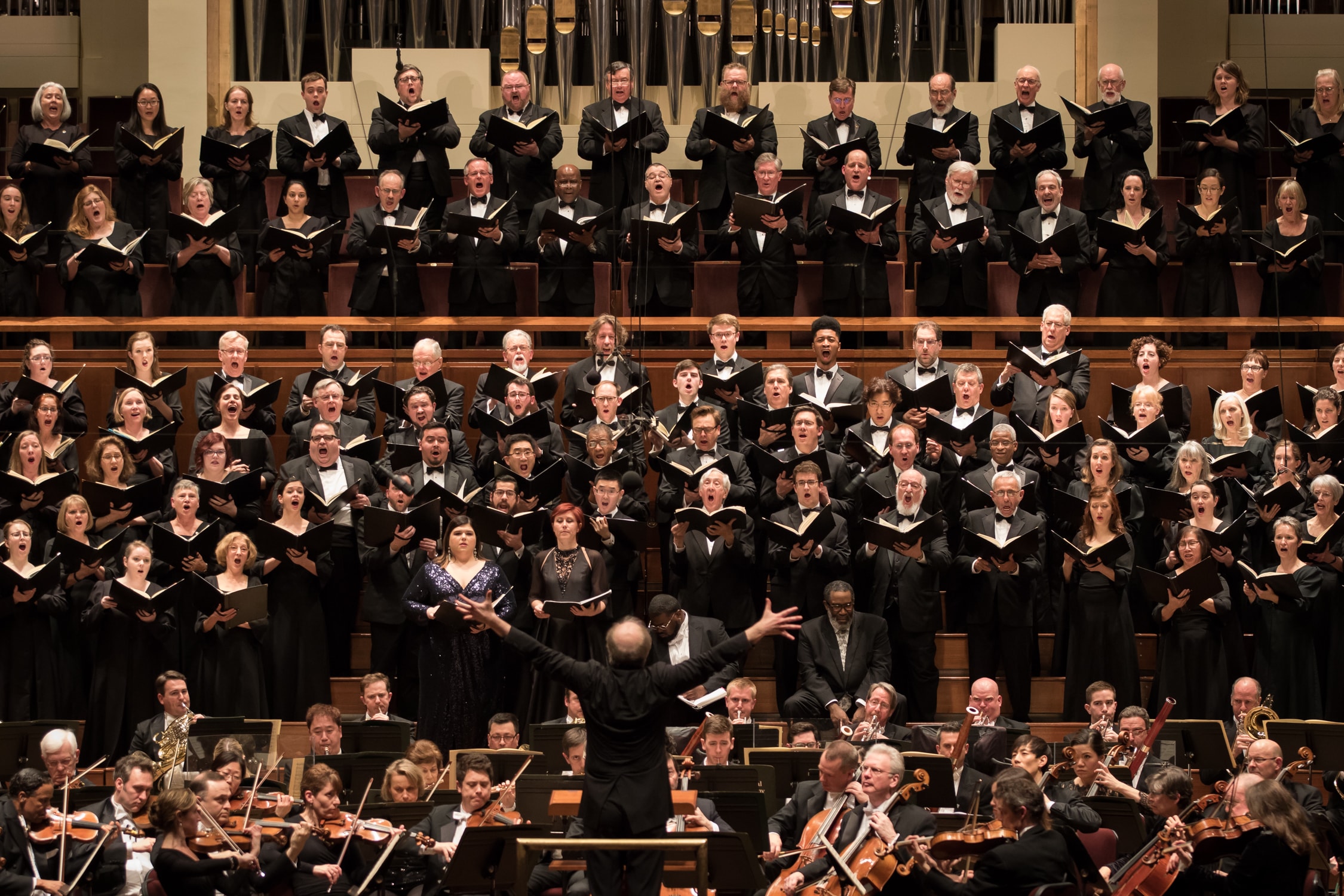
Are you going a D.C. United game when the new soccer stadium opens this summer?
Of course, of course.
They’re not very good at the moment.
I know. But I love sports. The reason why my people in Manchester never took me to the stadium there, to Old Trafford, is because in one of the semi-finals of the Champions League [the big competition among top clubs in all the European leagues], AC Milan, my football team, had just won over Manchester United. That was something they couldn’t get over. I asked them to take me and they went “hmmm.” So I went, just privately [laughs]. No one from the orchestra took me there!
We’ll do much better here. Are you going to a Washington Nationals game? The baseball stadium is right there too.
Well with baseball, I really have to go to the first two lessons, chapter 1, chapter 2. But I love the atmosphere, the people there, screaming, the ball. Of course I’ll go.
And maybe by next year you can tell us what your favorite restaurant is in Washington. People asked me to ask you that.
Next year I will tell you! Thank you, David. It’s been lovely.




